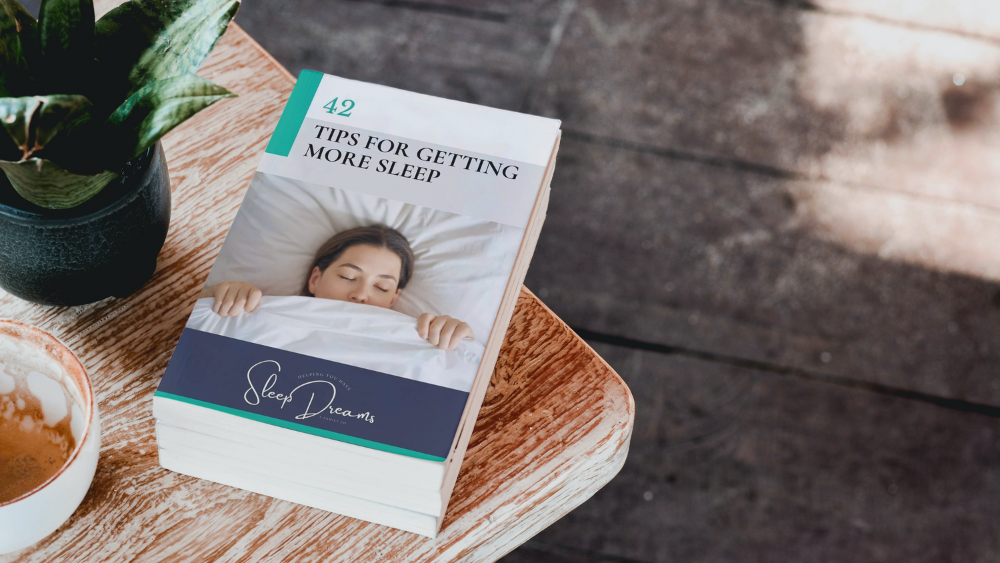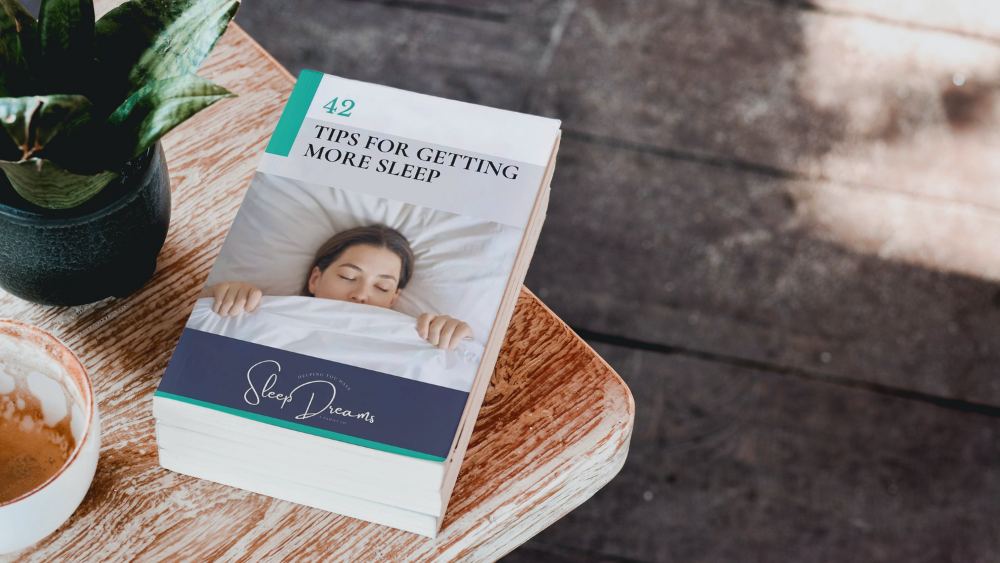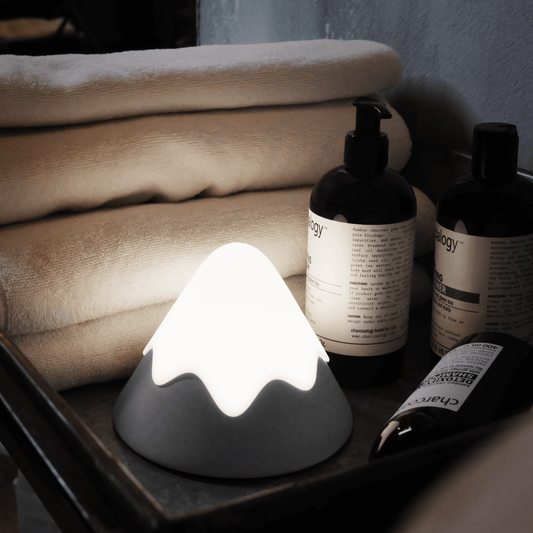In today's fast-paced world, quality sleep has become a precious commodity. Many of us struggle to fall asleep or stay asleep, leaving us feeling groggy and exhausted the next day. But fret not, because we've compiled 42 practical tips to help you achieve a restful night's sleep and wake up refreshed and revitalised.

We'll cover a wide range of strategies that address various aspects of your sleep routine. From establishing a consistent bedtime and wake-up time to creating a relaxing bedtime routine, we'll delve into the habits and practices that can set the stage for a peaceful slumber. We'll explore the impact of factors like exercise, caffeine intake, and evening light exposure on your sleep quality. We'll also provide insights into creating the ideal sleep environment, from maintaining a cool and dark bedroom to using white noise machines and essential oils.
Throughout the guide, we'll highlight practical suggestions like reading before bed, using blackout curtains, practicing mindfulness, and even adding plants to your bedroom for a calming atmosphere. We'll also address common sleep issues such as muscle soreness, loud noises, and restless legs, offering remedies like massage, earplugs, and magnesium intake.
Remember, achieving better sleep is a journey that requires consistency and experimentation. What works for one person may not work for another, so feel free to tailor these tips to fit your unique circumstances and preferences. By incorporating these strategies into your daily routine, you'll be well on your way to experiencing the transformative power of a good night's sleep.
If you'd like to have a downloadable version of these actionable sleep tips, we've provided a PDF for your convenience. Let's dive in and discover the secrets to unlocking your best sleep ever.
Here is your list of sleep tips:
1. Set a consistent bedtime and wake-up time
Going to sleep and waking up at the same time every day helps your body stick to a healthy sleep schedule.
2. Exercise regularly
Regular physical activity during the day can help you fall asleep more easily at night by helping to keep your body in its natural rhythm – aim for at least 30 minutes of physical activity every day.
3. Limit caffeine intake
Caffeine should be avoided in the late afternoon or evening, since it acts as a stimulant that can interfere with quality sleep. The best time to grab your coffee is in the morning time and try to limit yourself to 1 cup.
4. Avoid large meals before bedtime
Eating too close to bedtime can lead to indigestion or discomfort while trying to fall asleep, so it's best to finish eating at least two hours before going to bed.
5. Keep your bedroom cool and dark
A cool, dark room helps create an environment of relaxation that's ideal for falling asleep easily.
6. Reduce exposure to bright light in the evening
Dimming the lights in your home after dinner can help signal your body that it's time to wind down for the day. Using salt lamps can be especially helpful at setting the lighting to a low level of light and they create negative ions that purify the air.
7. Take a hot bath or shower before bed
Taking a hot bath or shower before bed can help your body relax the body and clear the mind – this will prepare you for sound slumber. Hanging a eucalyptus bunch in your shower can help to keep your sinus' clear aswell.
8. Listen to relaxing music
Listening to soothing music before bed can help you fall asleep faster and stay asleep longer.
9. Create a relaxing bedtime routine
Developing a calming bedtime ritual can help you relax and prepare for sleep, such as taking a warm shower or reading a book.
10. Diffuse essential oils
Essential oils like lavender have been known to have calming effects on the body and mind, so adding a few drops to your diffuser can help you relax before bed.
11. Make your bed comfortable
Invest in high-quality sheets, pillows, and a mattress that offers the necessary comfort and support you need for a good night’s rest.
12. Read a book before bed
Reading a book before bed is a great way to relax your mind and body without the use of electronics – this helps promote better sleep.
13. Keep all electronics out of the bedroom
Electronics belong in another room – not in the bedroom! Keeping phones, computers, and TVs out of the bedroom helps keep distractions at bay while trying to fall asleep.
14. Unplug from screens one hour before bedtime
Avoid using any electronic devices (tablets, phones) an hour before going to bed since the blue light they emit can keep us awake.
15. Stick to a regular waking time (even on weekends)
Regularly waking up at the same time helps keep your body's internal clock in sync, even on days off.
16. Keep your bedroom tidy
Clutter has been known to interfere with good quality sleep, so make sure your bedroom is neat and organised.
17. Avoid caffeine
Caffeine is a stimulant that can keep you awake for hours if consumed too close to bedtime, so avoid it after noon whenever possible.
18. Don’t stress out about sleep
Stress is a major sleep disruptor, so try to calm your mind and ease any worries or anxieties that may be preventing you from getting the rest you need .
19. Use a white noise machine
White noise machines emit calming sounds like the ocean, rain, or wind that will help you block out distractions and drift off into dreamland.
20. Add plants to your bedroom
Plants are known to create a calming atmosphere so adding a few to your bedroom can help you relax. Research which plants are going to work best in your bedroom depending on the light but popular staple go to's are Lavender and Peace Lilies.
21. Track your sleeping patterns
Keeping track of how much sleep you’re getting, when you’re going to bed and waking up, etc. can help pinpoint problems or areas for improvement. There are lots of apps that can do this or numerous wearables have tracking capabilities.
22. Try massage
If you have any sore muscles another way to relax before bed is to use an at home massager as part of your sleep routine.
23. Keep a pen and paper next to bed
If you find you mind is racing as you try to drift off, take a pen and paper to bed with you and write down things as they crop up. That way you can try to calm your mind and know you will have a list of things for the next day ready.
24. Consider using earplugs
If you have loud noises coming from outside, neighbours or your partner snoring using some earplugs that have been designed for sleep can be very effective.
25. Have Magnesium
Magensium is known to relax your muscles so if you suffer with restless legs this can help to clam you before you head off to sleep. Either from foods or supplements.
26. Avoid alcohol
Alcohol is a stimulant that can keep you awake if consumed too close to bedtime. It is also known to promote more snoring which might keep your partner awake aswell. Try to limit the amount of alcohol you drink and be sure to balance with water.
27. Try yoga or stretching exercises
Doing gentle stretches or yoga poses can help relax the body and prepare it for restful sleep. This along with meditation is known to be very successful as part of a sleep routine.
28. Avoid night time exercise
Even though regular exercise promotes better sleep, avoid doing it too close to bedtime as it can be too stimulating.
29. Limit late-night snacks
Eating a snack shortly before bed can lead to indigestion and discomfort, so try to limit late-night snacking as much as possible. Some foods are known to help induce sleep (mainly due to their magnesium content) but make sure you don't eat at least 2 hours before you go to sleep.
30. Practice mindfulness
Taking just a few minutes each night to be mindful of your thoughts and feelings can help clear the mental clutter and make it easier to drift off into dreamland.
31. Invest in blackout curtains
Blackout curtains are essential if you want to block out all light from coming into your room at night – this helps create an optimal sleeping environment.
32. Keep the temperature comfortable
Make sure your bedroom is neither too cold nor too hot as both extremes can interfere with good quality sleep.
33. Invest in comfortable bedding
Make sure your mattress is comfortable and supportive, your blankets are soft and cozy, and that you have plenty of pillows for maximum comfort while sleeping.
34. Lock away work materials
Don’t bring any work materials with you into the bedroom – this helps keep distractions at bay and allows you to focus on getting quality sleep.
35. Keep humidity at bay
Make sure your room is dry and there is no moisture in the air. You spend less time in REM sleep when the humidity is high. Allowing air to flow freely throughout the daytime can help to combat humidity or investing in a dehumidifier.
36. Change your pillow
If you wake up with a sore neck or back, you may need to change your pillow. Pillows are designed to provide a comfortable sleep surface and can be tailored for stomach, side and back sleepers.
37. Take some time for yourself
Taking a few minutes for yourself before bed can help you relax and prepare for sleep, so take some time to do something calming like stretching or reading.
38. Avoid naps during the day
While a power nap is fine every now and then, try to avoid them if possible as they can throw off your regular nighttime sleep schedule.
39. Try some aromatherapy
Aromatherapy has been known to help people relax and get ready for sleep, so try diffusing some soothing scents like lavender or chamomile.
40. Write down worries and stresses
Writing down all of your worries before bedtime can help clear your mind and make it easier to drift off into peaceful slumber.
41. Don’t drink too much before bed
Avoid drinking excessive amounts of fluids right before bedtime as they may cause you to need to use the bathroom during the night. It can be hard to fall back to sleep if you are awoken at night.
42. Don’t force yourself to sleep
Trying too hard to fall asleep will only make it more difficult – focus on relaxing and let sleep come naturally when your body is ready. You cannot make yourself sleep so if you find yourself getting frustrated get up for a short time, make a small cup of chamomile tea and read a few paragraphs of a book.
If you would like to download a PDF version of our actionable sleep tips you can download it here.





















